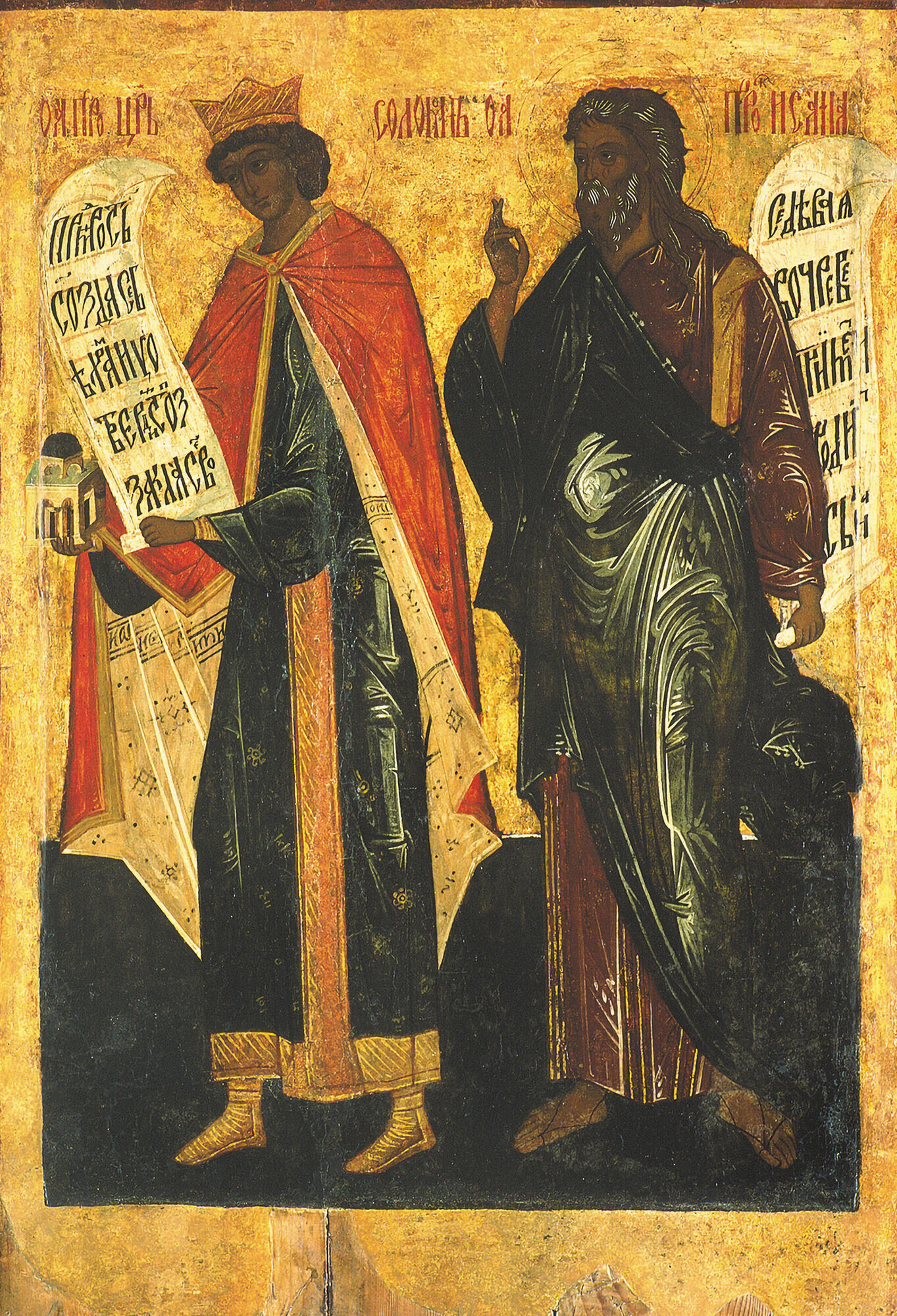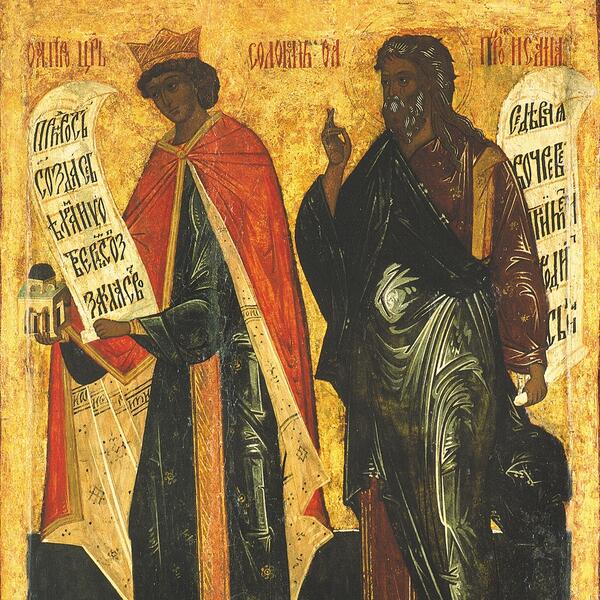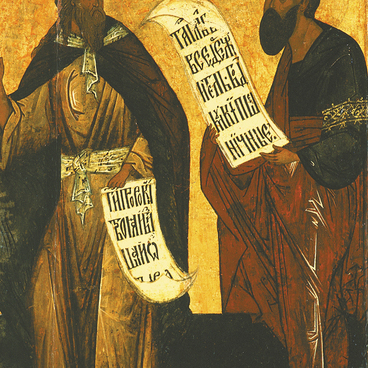The icon of Prophets Solomon and Isaiah belongs to the oldest surviving Prophets tier in Yaroslavl.
Solomon was the tenth son of Kind David born from his marriage with Bathsheba. Even before his birth, Solomon was chosen by God to be the successor to the throne and later became the third king of Israel. His reign coincided with the golden age of the Kingdom of Israel, and after his death, the country split into two parts.
The Old Testament includes the so-called Books of Solomon: the Song of Songs, the Proverbs, Ecclesiastes, Psalms, and the Wisdom of Solomon, a deuterocanonical book recognized by the Orthodox and Catholic Churches. The prophet was known for his wisdom and fairness.
Solomon carried out the idea of his father, King David, and constructed the most important Jewish place of worship — the Temple of Jerusalem where the Ark of the Covenant was placed. The construction of this temple and some of the quotes from Solomon are considered to foreshadow the arrival of the Virgin Mary: just like the stone church became the house of the Lord, Mary would later become the God-Bearing Human Temple.
In the iconographic tradition, Solomon is portrayed as a young man wearing royal clothes and a crown and holding a scroll with a quote from the Books of Solomon in his hand.
Prophet Isaiah was born into a priest’s family around 765 BC. He lived his whole life in Jerusalem. At the age of 20, he had a vision: he saw God seated upon a high throne and surrounded by angels praising him with the words, “Holy, holy, holy, is the Lord of Hosts: the whole earth is full of his glory.” From that moment on, Isaiah became a prophet. He prophesied during the reigns of Azariah, Jotham, Ahaz, and Hezekiah; during the time of King Manasseh, who was a persecutor of prophets, Isaiah suffered a martyr’s death.
The prophet condemned hypocrisy and idolatry, spoke about the pre-determined and incomprehensible design of God, and predicted the Kingdom of Heaven where “nation shall not lift up sword against nation, neither shall they learn war any more” (Isaiah 2:4).
The Book of Isaiah describes life in Jerusalem in the late 8th — early 7th century BC. Instead of following a chronological order, it is organized according to the topics: chapters 1–39 contain warnings of judgment, while chapters 40–66 intend to console the Jewish people ahead of the Babylonian captivity.
The prophecies of the birth, service, and self-sacrifice of the Messiah are particularly important for the Christian Church.
Solomon was the tenth son of Kind David born from his marriage with Bathsheba. Even before his birth, Solomon was chosen by God to be the successor to the throne and later became the third king of Israel. His reign coincided with the golden age of the Kingdom of Israel, and after his death, the country split into two parts.
The Old Testament includes the so-called Books of Solomon: the Song of Songs, the Proverbs, Ecclesiastes, Psalms, and the Wisdom of Solomon, a deuterocanonical book recognized by the Orthodox and Catholic Churches. The prophet was known for his wisdom and fairness.
Solomon carried out the idea of his father, King David, and constructed the most important Jewish place of worship — the Temple of Jerusalem where the Ark of the Covenant was placed. The construction of this temple and some of the quotes from Solomon are considered to foreshadow the arrival of the Virgin Mary: just like the stone church became the house of the Lord, Mary would later become the God-Bearing Human Temple.
In the iconographic tradition, Solomon is portrayed as a young man wearing royal clothes and a crown and holding a scroll with a quote from the Books of Solomon in his hand.
Prophet Isaiah was born into a priest’s family around 765 BC. He lived his whole life in Jerusalem. At the age of 20, he had a vision: he saw God seated upon a high throne and surrounded by angels praising him with the words, “Holy, holy, holy, is the Lord of Hosts: the whole earth is full of his glory.” From that moment on, Isaiah became a prophet. He prophesied during the reigns of Azariah, Jotham, Ahaz, and Hezekiah; during the time of King Manasseh, who was a persecutor of prophets, Isaiah suffered a martyr’s death.
The prophet condemned hypocrisy and idolatry, spoke about the pre-determined and incomprehensible design of God, and predicted the Kingdom of Heaven where “nation shall not lift up sword against nation, neither shall they learn war any more” (Isaiah 2:4).
The Book of Isaiah describes life in Jerusalem in the late 8th — early 7th century BC. Instead of following a chronological order, it is organized according to the topics: chapters 1–39 contain warnings of judgment, while chapters 40–66 intend to console the Jewish people ahead of the Babylonian captivity.
The prophecies of the birth, service, and self-sacrifice of the Messiah are particularly important for the Christian Church.



